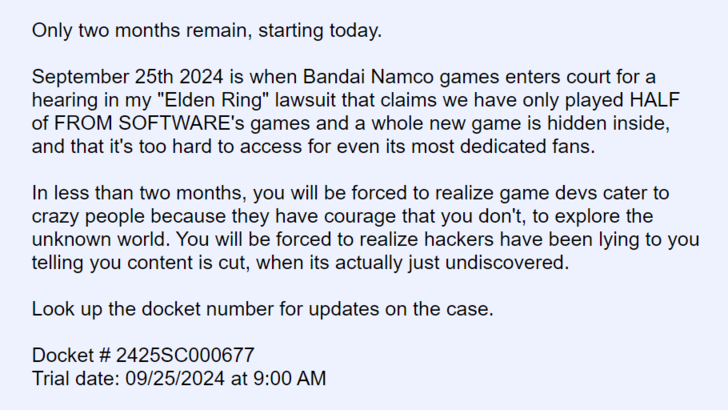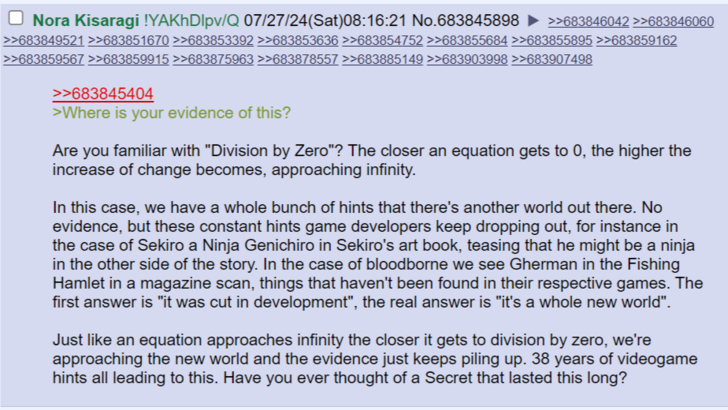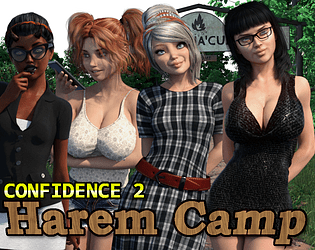Elden Ring Player's Lawsuit: A "Skill Issue" or Misleading Marketing?

A player, Nora Kisaragi, has initiated a lawsuit against Bandai Namco and FromSoftware, alleging deceptive marketing practices concerning Elden Ring's content. Kisaragi claims the game's extreme difficulty intentionally obscures substantial hidden content, essentially arguing that players paid for inaccessible features. This claim, announced on 4Chan, will proceed in Massachusetts small claims court on September 25th.
The core of Kisaragi's argument centers on the idea that FromSoftware games, known for their challenging gameplay, contain a "whole new game… hidden inside," deliberately concealed by their high difficulty. Kisaragi cites datamined content as evidence, rejecting the common interpretation that this data represents cut content, instead insisting it represents intentionally hidden gameplay. The plaintiff's evidence is largely circumstantial, relying on vague "hints" from developers like statements from Hidetaka Miyazaki and references to Sekiro's art book.


The lawsuit's viability is questionable. While Massachusetts small claims court allows individuals 18 and older to sue without legal representation, the plaintiff faces a significant hurdle in proving deceptive marketing. The claim rests on the unsubstantiated assertion of a "hidden dimension" within the game. Even if such content existed, the extensive efforts of dataminers would likely have uncovered it. The prevalence of cut content in game development, often due to time or resource constraints, further weakens the plaintiff's argument. The likely outcome is dismissal due to lack of substantial evidence.

Despite the low probability of success, Kisaragi's primary goal seems to be forcing Bandai Namco to publicly acknowledge the existence of this alleged "hidden dimension," regardless of the court's decision.

This case highlights the ongoing debate surrounding game difficulty and player expectations. While FromSoftware's challenging games are a defining feature, Kisaragi's lawsuit raises questions about the boundaries of marketing and the interpretation of game design choices. The outcome will likely serve as a cautionary tale about the limitations of pursuing frivolous lawsuits, even within the informal setting of small claims court.









